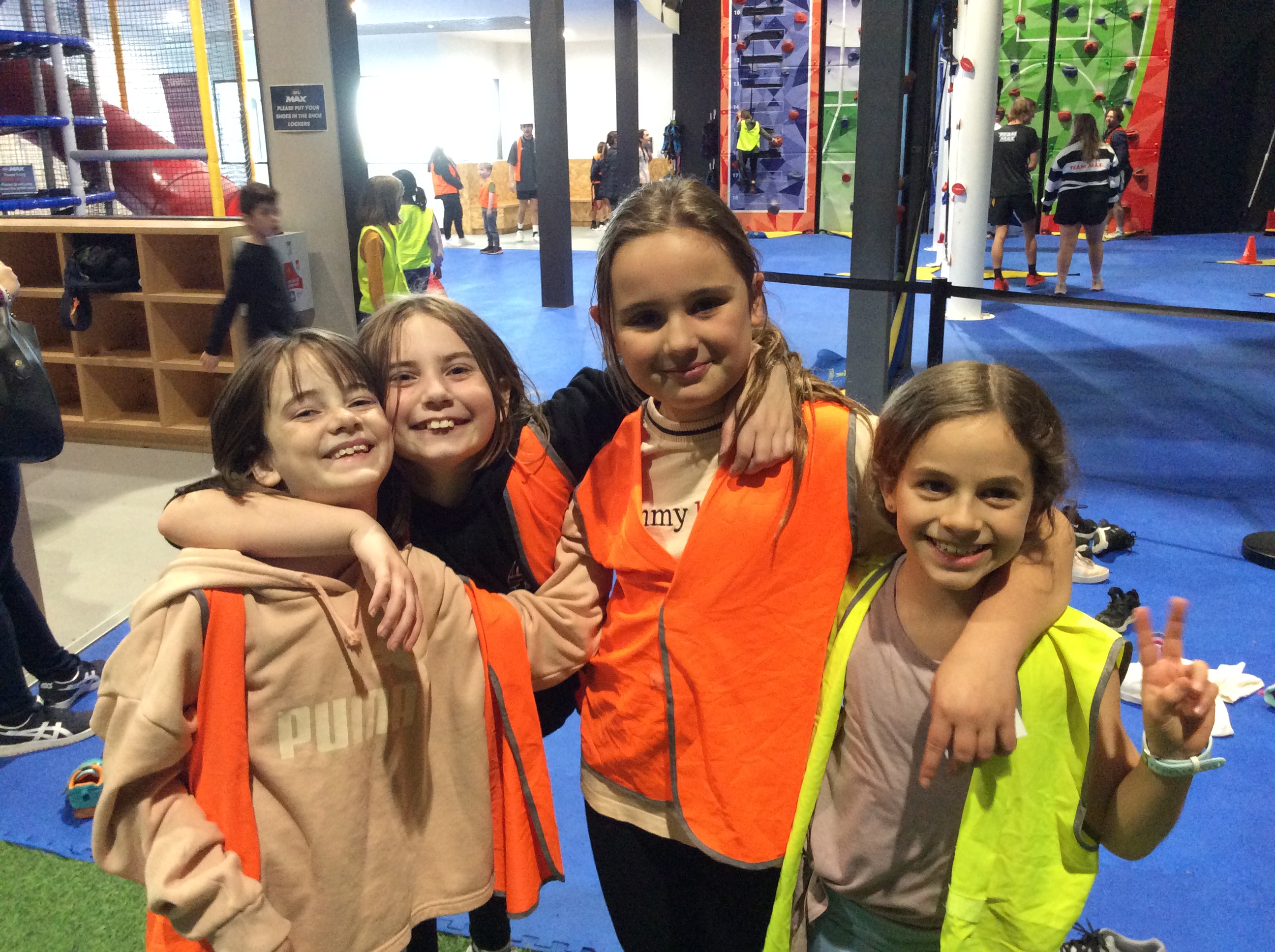Dear Families,
Ideas to assist your child/ren in difficult times
Continuing on from the last Parent Newsletter, where the focus was on ways to help you through tough, exhausting, and stressful times. In today’s piece, I provide some helpful ways to guide your child/ren through challenging and confusing times, again stemming from families and parenting author Dr Justin Coulson.
Tool #1: Minimise Triggers
It’s almost a given that your child/ren will struggle when they’re hungry, angry, lonely, tired, or stressed. Be aware that these triggers exist and reduce their exposure to them.
Tool #2: Encourage Healthy Breaks
Your child/ren are designed to be happiest when they are active and playing. Facilitate lots of play for them, and when they’re on screens or doing schoolwork, make sure play opportunities are a regular feature of their schedule. Open-ended activities, particularly those with a little bit of age-appropriate risk, are ideal.
Tool #3: Give Voice to Feelings
Knowing that somebody understands goes surprisingly far in helping make stressful or challenging situations bearable. ‘Feel’ with your child/ren and give voice to their feelings. You might say, “You must be struggling so much. You must see how stressed I am and that’s no fun for you. I can’t make it alright… but I understand that it’s hard for you.” When you do this, your child/ren won’t feel alone. Additionally, remember, an emotion is like a train going through a mountain tunnel. It will pass through to the other side if you allow this to occur. There’s no need to plunge your hand deep down through the mountain and rip that train out of the top. You’ll only make a big mess. Give it time.
Tool #4: Pre-arm your Child
If you know something challenging is coming, talk to your child/ren about it. If you have a child around the age of 9 and the war is going to be in their awareness, you could say:
“There’s been something horrible on the news and I want to tell you about it. Over the next little while you’re going to hear stories about invasions, guns, and even some killing. War is a really awful thing. I want you to know it’s happening, and to talk to me about any questions you have.”
Pre-arming your child/ren, when done discerningly, and with a focus on your child/ren’s healthy and age-appropriate development, can make them resilient. When you tell them everything that’s going to happen, what they’ll see, where things will be, how things will work, and so on, they are less likely to be shaken when it occurs. Further, you’ve done it in an emotionally safe and supportive space.
Tool #5: Encourage Mindfulness
There is plenty of evidence that mindfulness can work for some people in the right context, and it should be a considered tool to be used. Here are two simple mindfulness exercises that can work wonders with children:
- Deep Breaths: So simple, but concentrating on deep breaths really does centre and balance us. Breathe in for 5 seconds, hold for 3 seconds, and breathe out for 5 seconds. Repeat 3 times. Feel the difference.
- Countdown to Calm: This activity involves all 5 senses. Your child/ren sits with you and identifies 5 things they can see, 4 things they can feel/touch, 3 things they can hear, 2 things they can smell, and 1 thing they can taste. It doesn’t matter if they can’t get all the answers. It’s about being present. Identifying our senses does that.
Tool #6: Visualisation
Encourage your child/ren to picture themselves on a grassy knoll beside a river, sitting beneath a big tree in the sunshine. A leaf falls from the tree and drops into the river. It slowly floats past your child, through the rocks, around the bend, and out of sight. The leaf is like our thoughts. They come and go. We simply accept them, and sit and watch them float by with mild detachment. In this way, our thoughts are no longer facts. They’re no longer frightening. They’re merely ideas that we have.
Tool #7: Be Present
There are times when nothing works. In those moments, your presence is sometimes all your child needs to get through a tough time. A hug from mum or dad, can make everything feel better. No words required.
Tool #8: Offer Autonomy
A supportive line to use when a child is upset: “Would you like me to be with you to talk; would you like me to be with you and not talk; or would you like some space?”
Tool #9: Give your child/ren ‘The Fantasy’
Sometimes a child needs to know they can’t have what they want, but in a deeply empathic and understanding way. It might be a visit to a beloved family member that is cancelled due to health issues and COVID restrictions. Perhaps it’s an end to war, global hunger, or poverty. Our children have some generous desires. We obviously can’t give them that, and we can’t reassure them everything will be fine. That’s false and they know it. In this instance, offer them ‘the fantasy’. “Wouldn’t it be great if…” “Don’t you just wish that…” When you do this, you provide them with the knowledge that you really do understand – and that is such a reassuring thing.
Tool #10: Build Hope
As parents we are hope-builders. During tough, terrible, tumultuous times our children can sometimes feel hopeless rather than hopeful. Hopelessness can lead to helplessness, which is related to depression and anxiety. We don’t want that.
Build hope – be a hope-builder! First by working with your child/ren on finding something to work towards – a goal. However, more is needed for hope. Second, help them identify a way to reach that goal – a pathway (or more than one if some paths turn out to be dead ends). Third, help them believe in themselves and their ability to walk that path to that goal.
Perhaps that is how we build hope best. We give our children the support they need to develop belief in themselves. We reassure them that we believe in them, particularly when times are tough.
Conclusion
Terrible times come and go throughout our lives. What’s interesting is that often global catastrophes affect our children (and us) far less than we might have imagined. The smaller, personal challenges are substantially more affecting.
Regardless of how tough times are, the ideas presented will help you get through the challenges life throws our way; including the moments where we languish.
Lastly, if your child/ren, or you are genuinely doing it tough – seek help. Is it making an appointment to see the GP, a psychologist or counsellor; whatever it may be. Just be sure you receive help.
End of Year Concert
Our End of Year Concert, celebrated on, Wednesday 30 November, was a fantastic community event with a positive vibe. I am grateful for your attendance. The children were joyous in performing and looked spectacular on the stage.
I wish to acknowledge those who provided food and drinks for the evening; the Parent and Friends for their support; and especially Skye Campbell-Hand and Kayla Holding, who did the lion’s share of work in organising the catering and promoting the event. Also, a large thank you to Staging for supplying the stage.
Lastly, as mentioned in my wrap-up on the night, a big congratulations to the school’s singing teacher, Julia Johnson and support from our Music/Performing Arts Teacher, Jane McDowell for the time put towards planning and preparing for the event.
Sports Day thanks
Despite the rain towards the end of Sports Day, making for a hasty conclusion, it was a successful day. Thank you for your attendance and support.
I do especially acknowledge: the children’s effort and enthusiasm; our parent volunteers who gave out ribbons, assisted in walking the children to Payneham Oval from school and assisted with the sausage sizzle; staff who ensured the events ran effectively; those who assisted with the setting and packing up of equipment; the scorers; First Aid officers; the P&F for setting up the fruit stall for the children; and the generosity of Tony and Mark’s for supplying the fruit.
Lastly, I extend my thanks to Physical Education Teacher and Coordinator, Adrian Mastrangelo for the planning, organisation and work in the lead up to Sports Day – it’s a big undertaking and I congratulate Adrian on a successful school-wide event.
Neighbours’ gardens
Please ensure your child/ren are not touching the neighbours’ gardens (including the verge) when travelling to and from school. There have been a couple of complaints from neighbours concerning ripped flowers and shrubs.
Building work traffic update
There will be an increase in the volume of trucks, cranes, and workers from 7 December until the end of the school year, especially along Tarcoma Avenue. As always, please take care when driving and dropping-off/picking-up your child(ren)
COVID-19 Vaccination Policy update
There is an update and change in relation to the COVID-19 Vaccination Policy as implemented by Catholic Education South Australia (CESA). The amended Policy has adopted a ‘personal responsibility’ approach that strongly encourages vaccination but does not require it to work and volunteer in most CESA workplace settings (except a few ‘high-risk’ settings where up-to-date vaccination will be required).
This outcome means that volunteers who are approved by the school to provide support at St Joseph’s Payneham, including attending excursions, now need only to comply with the South Australian Commission for Catholic Schools (SACCS) Policy for Volunteers. In short, volunteers need to have signed the school’s Volunteer Declaration and hold a current Catholic Working With Children Check. Ongoing volunteers also need to have completed the free 2 hour online Mandatory Reporting (RRHAN-EC) training.
We are grateful for your continued support of our students, particularly in volunteering for different events and activities.
Conclusion of Term Four
Whilst there will be one more Parent Newsletter for this year; advanced notice that Term Four concludes on Wednesday 14 December at 3:00pm (the final day for our Year 6 students is Tuesday 13 December).
Wishing you well!
Simon Mechis






Social